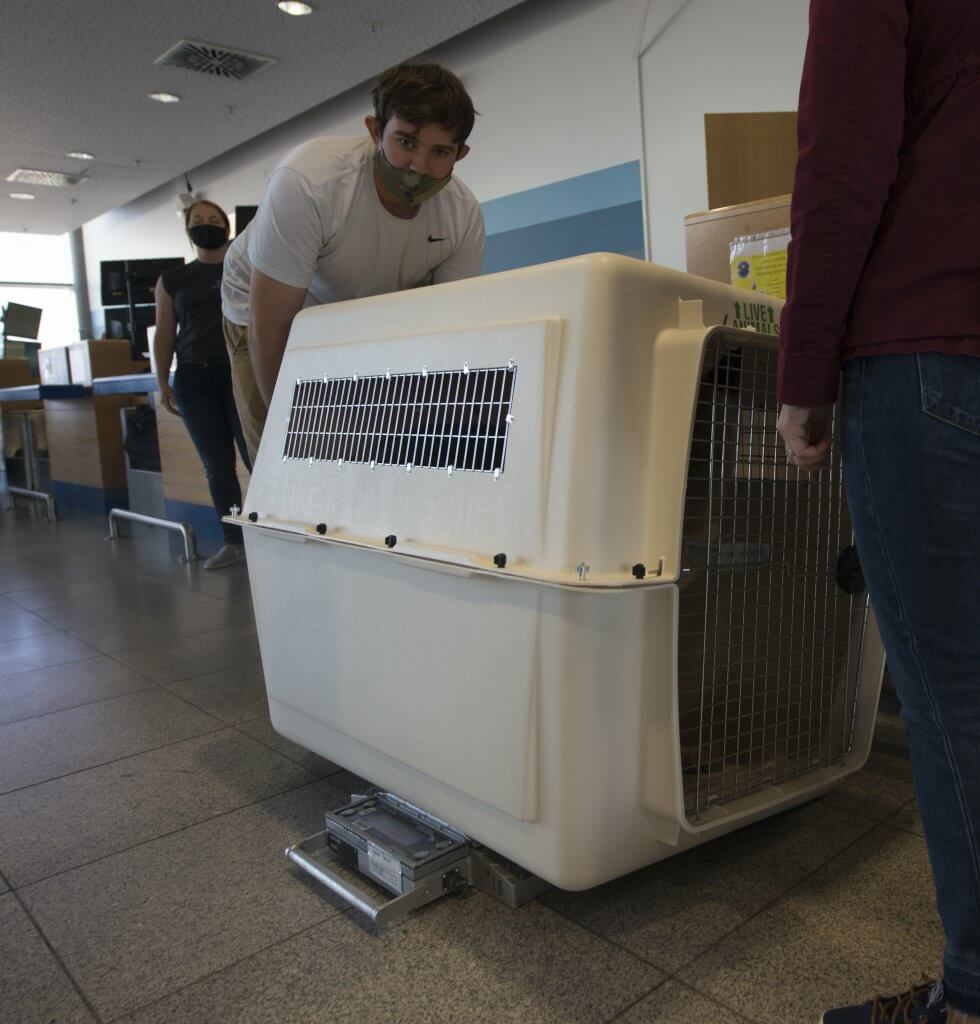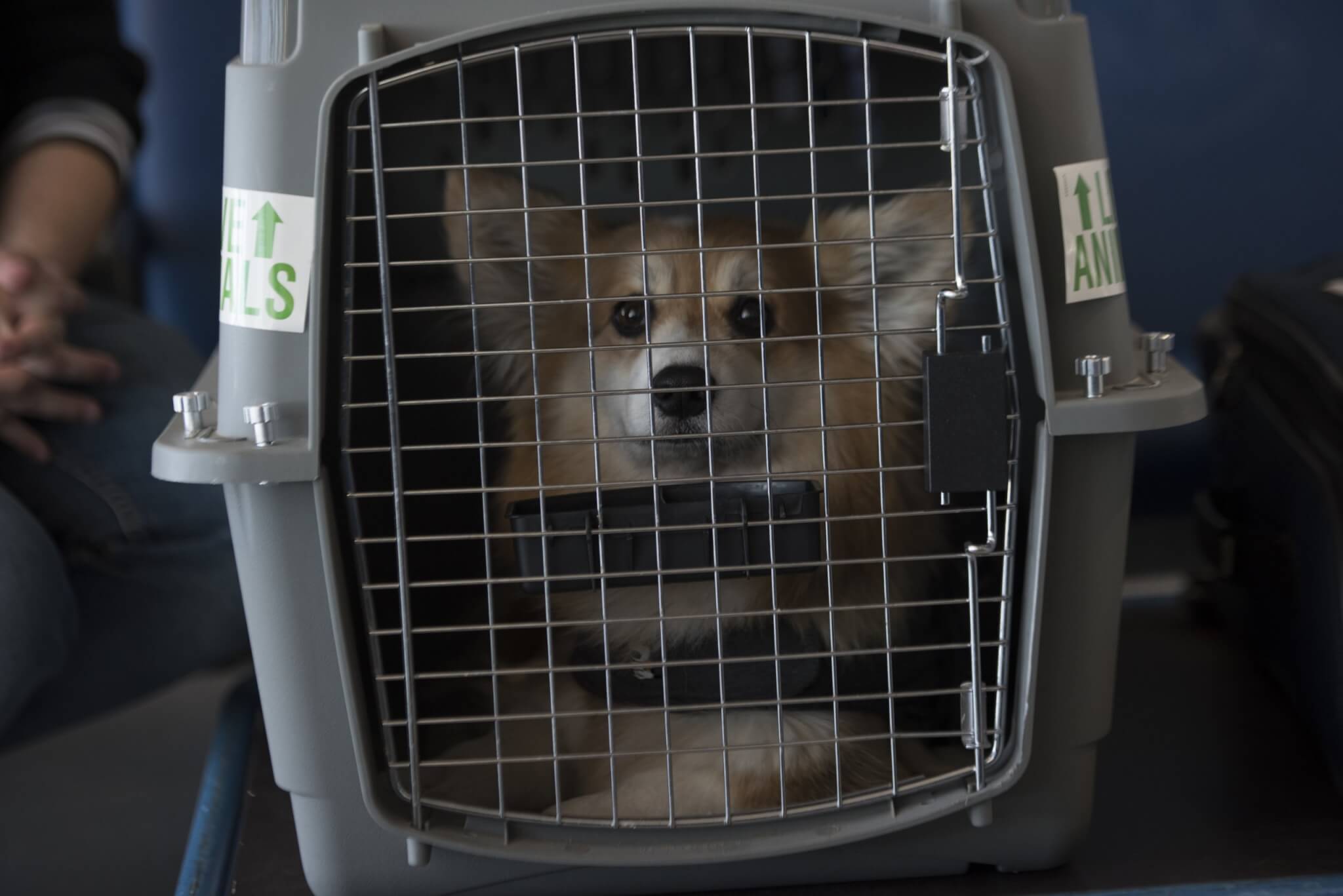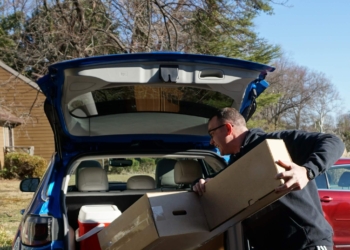Adding to the heartbreak of leaving behind friends, jobs and neighborhoods when PCSing is having to say goodbye to a pet if a family cannot afford the tremendous costs of bringing a furry family member overseas. One USMC vet and military spouse is working to prevent anyone from having to make that choice with the organization she founded, Leave No Paws Behind USA. The nonprofit provides grants to help with pet transportation costs and advocates for policies that ease the burdens of PCSing with a pet.
Liz Hensel became aware of just how difficult and expensive it is to move a pet overseas when her family received orders to Iwakuni, Japan. As she researched how to bring along Prince, their German Shepherd Dog, she heard stories about months of stress and thousands of dollars spent on the intricate process. Worse still were the stories of families who simply couldn’t afford several months’ pay to bring their dog or cat with them and who had to make the heart-wrenching choice to leave the animal with family or find a new home for their beloved pet and never see it again.
 “Our dog is a huge part of our family, and I cannot imagine leaving him behind. The pain some of the families overseas must have had to make that decision of leaving their pets broke my heart. I thought, ‘What can we do? What can I do to help these families not have to make that decision?’ That is how Leave No Paws Behind USA was born.”
“Our dog is a huge part of our family, and I cannot imagine leaving him behind. The pain some of the families overseas must have had to make that decision of leaving their pets broke my heart. I thought, ‘What can we do? What can I do to help these families not have to make that decision?’ That is how Leave No Paws Behind USA was born.”
Before bringing a pet overseas, there are shots requirements, multiple vet appointments, and extensive shipping fees. A crate alone can cost more than $600 for larger dogs, and families must cover all those costs. This is where Leave No Paws Behind USA can help.
Hensel began efforts to start Leave No Paws Behind USA in 2019. The organization gained status as a legal nonprofit in 2021. Since then, they have already awarded multiple grants for families to use toward pet PCS expenses. As they increase the number of donations and grow their organization, the staff at Leave No Paws Behind is excited to be able to provide more assistance. “We truly strive to help these families,” said Hensel, but the organization says they can’t provide that assistance without support. On the cusp of a new PCS season, Hensel and her team hope to be able to offset pet transportation costs for even more families in the coming year. They depend on donations and fundraising to be able to do so.
Families seeking financial assistance for pet PCS costs can apply on the organization’s website. They will also find resources to help walk pet owners through the complicated process of preparing their pets for travel, including information on veterinary requirements and the animal health certificate packet.
In addition to supporting families with grant funds and information, Leave No Paws Behind USA is also working with Sen. Cory Booker on legislation to include a pet transportation stipend for military and diplomatic families. This would allow families to be reimbursed by the government for at least part of the expense associated with bringing their animals overseas.

Hensel has long been called to service. When she left the Marine Corps after injuries sustained in Afghanistan in 2010, her dog helped her tremendously with the transition and with her post-traumatic stress. As she looked for new ways to continue to serve, helping other military families keep their pets with them during their own transitions was a natural fit.
“As a military member and military spouse myself, I see the resilience a military spouse needs to have for this lifestyle. My dog really helped me with my PTSD. I saw how important he was for our family, and I felt it was so unfair some families had to make this difficult choice to leave their pets behind because it can get so expensive. I have a voice, so I am going to use it.”
Leave No Paws Behind USA funds its work and grants through private donations and Amazon Smile. To donate or learn more, visit: https://www.leavenopawsbehindusa.com.
Read comments






































